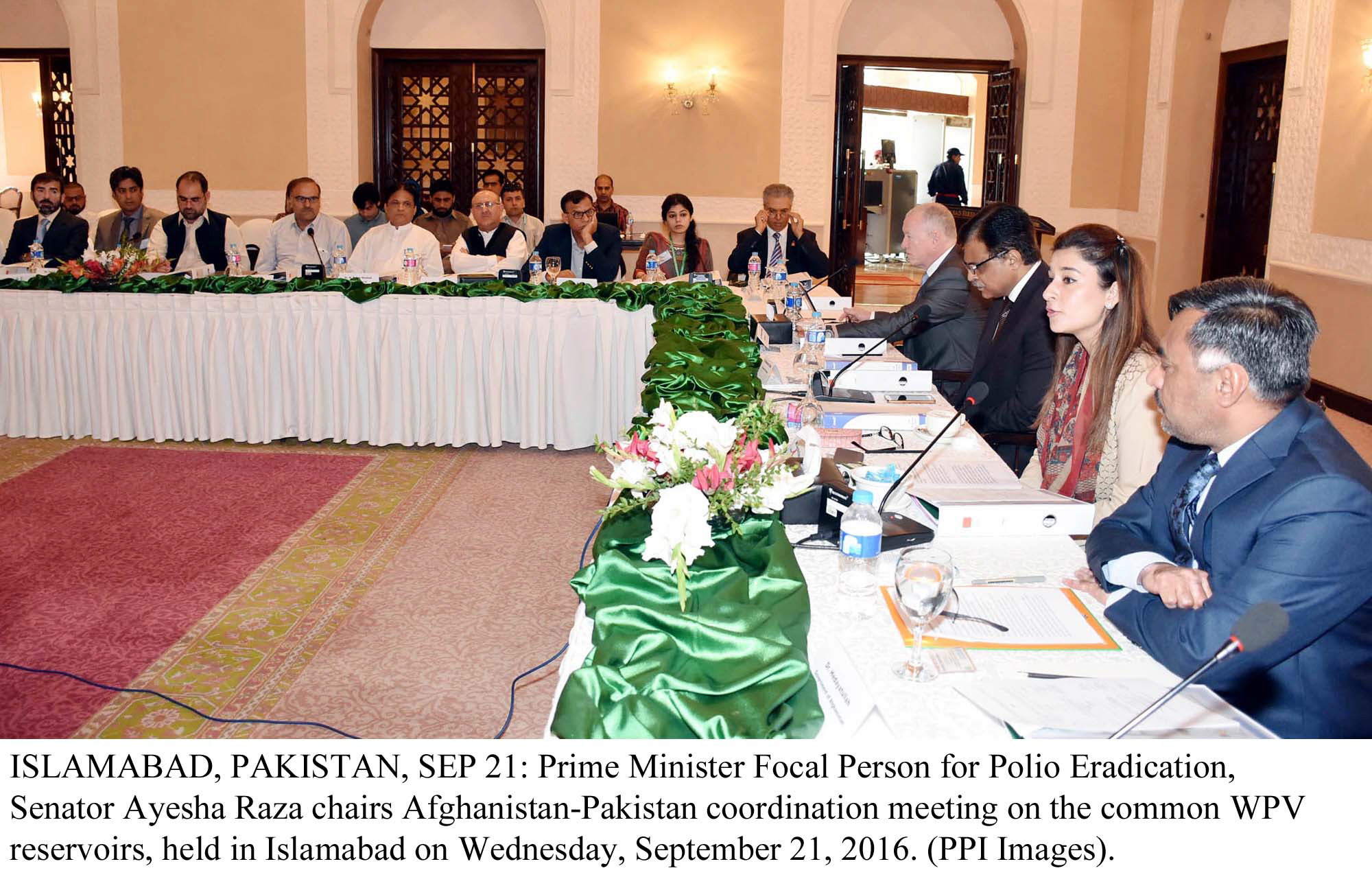
They committed to continue supporting Pakistan for eradicating polio.
The international partners, comprising WHO, UNICEF, Bill and Melinda Gates Foundation, Canadian High Commission, JICA, Rotary International, CDC, USAID and AUSAID, expressed this at a high-profile briefing at the National Emergency Operations Centre (NEOC) on Saturday.
They were given a detailed briefing on the status of the ongoing polio programme by EOC National Coordinator Dr Rana Muhammad Safdar.
Besides briefing the participants about the progress of the current polio situation, Dr Safdar presented a performance report of the government during the 2015-16 transmission season prepared by an independent third party. The programme successfully achieved its target of 90 per cent coverage in all provinces.
Dr Safdar said that their next target was to increase the coverage level up to 95 per cent in all designated areas.
“Steady pressure on the virus is paying dividends which can be seen well beyond the reduced case count,” he said, adding that “Core reservoirs are now Khyber-Peshawar-Nangarhar, Quetta-Kandhar and Karachi”.
He hoped that consistent cooperation and support from the communities along with an aggressive campaign schedule would help wipe the virus out of the country.
Earlier, Prime Minister’s focal person on polio, Senator Ayesha Raza Farooq, told the international partners about the government’s determination to rid the country of the menace of polio while pointing towards the considerable progress made over the past 18 months.
Highlighting successes of the programme, Senator Farooq, said that they had managed to gain access to almost all past inaccessible pockets. She pointed out that the prime minister’s continued oversight and active involvement in the campaign through the National Task Force (NTF) and the Prime Minister’s Focus Group (PMFG) had boosted its accountability everywhere.
Discussing the accountability mechanism of the programme, Senator Farooq, said implementation of a nationally endorsed accountability and performance management framework has resulted in rewarding of good performance, and where necessary, the active removal of underperforming senior governmental or partnership staff from positions of authority.
“Post-polio, we would collectively continue benefiting from this critical EOC infrastructure and working mechanisms in the interest of broader public health agenda in the country,” she said.
Partner representatives termed the programme’s success in Pakistan a lesson for all public health programmes and suggested that the critical network of Emergency Operation Centres be used to deliver broader national public health agenda in the future.
Published in The Express Tribune, September 25th, 2016.

1730360426-0/Menendez-Brothers-(2)1730360426-0-165x106.webp)
1732534556-0/taylor-(14)1732534556-0-165x106.webp)
1725872216-0/Tribune-Pic-(3)1725872216-0-165x106.webp)
1732532771-0/BeFunky-collage-(89)1732532771-0-165x106.webp)

1732530440-5/Copy-of-Untitled-(85)1732530440-5-270x192.webp)

1732534225-0/Express-Tribune-(13)1732534225-0-270x192.webp)








COMMENTS
Comments are moderated and generally will be posted if they are on-topic and not abusive.
For more information, please see our Comments FAQ